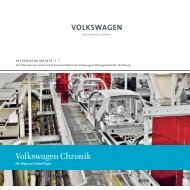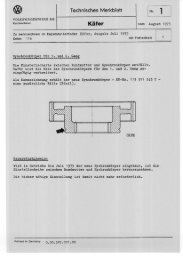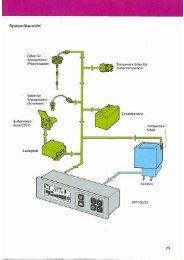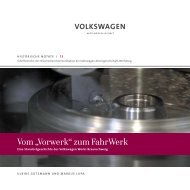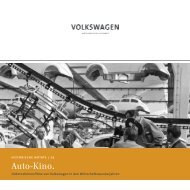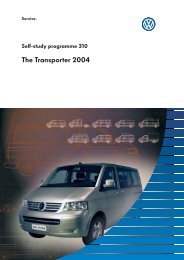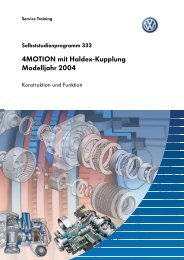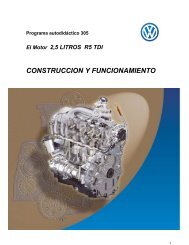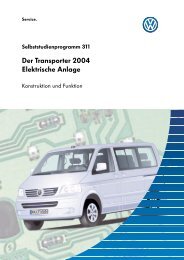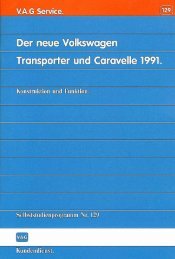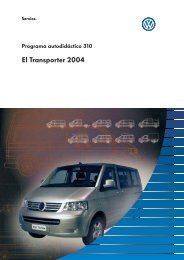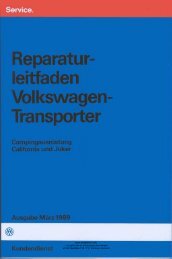HN 2: The British and their Works
HN 2: The British and their Works
HN 2: The British and their Works
You also want an ePaper? Increase the reach of your titles
YUMPU automatically turns print PDFs into web optimized ePapers that Google loves.
4.2<br />
<strong>The</strong> DM boom<br />
Overnight the shop windows were filled with goods that<br />
ordinary consumers had not set eyes on for a long time. Secret<br />
hoards yielded up saucepans, toothbrushes, books <strong>and</strong> other<br />
long-yearned-for consumer articles which could now be sold<br />
without ration cards. A Volkswagen could, at least in theory, be<br />
delivered within eight days at a price of 5,300 DM. Even the cows<br />
seemingly reacted positively to the currency reform on 20th June<br />
1948, because in the first week of the DM, butter supplies<br />
showed a remarkable increase. 206 <strong>The</strong> "shop-window effect"<br />
lent the currency reform a veritably mystical quality. For most<br />
contemporaries it was not the proclamation of the "Grundgesetz"<br />
on 23rd May 1949 that marked the beginning of a new<br />
age, but the issue of DM banknotes. If an image symbolising<br />
Germany’s New Beginning has etched itself on the collective<br />
memory, then it is that of the long queues which formed at the<br />
bank counters, where a per capita sum of 40 DM was exchanged<br />
at a rate of 1:1.<br />
And at the Volkswagenwerk? "Everything changed in Germany,<br />
like desert flowers after a heavy rainfall. <strong>The</strong>re was a new spirit<br />
of optimism, <strong>and</strong> steel <strong>and</strong> so forth was now available.<br />
Production at VW increased." Thus Major Ivan Hirst recollected<br />
the psychological <strong>and</strong> economic effect of the currency reform. 207<br />
Its short-term effect on production was indeed astonishing.<br />
From 1,135 cars in May 1948, vehicle production climbed to 1,520<br />
in June <strong>and</strong> 1,806 in July. This production increase was based at<br />
least partly on the release of raw materials which had been<br />
hoarded prior to the currency reform. Consequently the volume<br />
of supplies grew from 3.7 million DM in June to 9.3 million DM<br />
in the following month. 208 Since mid-1947 withholding materials<br />
<strong>and</strong> only "swapping" them in barter deals had been common<br />
practice among VW suppliers. This is actually true of the entire<br />
national economy: in 1947 a large portion of production had<br />
already been stockpiled but was not recorded in any statistics.<br />
On this basis, the currency reform is revealed as part of an<br />
ongoing upward economic trend that began in the autumn of<br />
1947. It was this trend alone that made the currency reform’s<br />
resounding success possible. 209 At the Volkswagen plant too, the<br />
stage for production growth had long been set by the German<br />
<strong>and</strong> <strong>British</strong> management. However, it was the instantaneous<br />
improvement in the materials situation that formed the essential<br />
basis on which the fruits of previous efforts could now be<br />
harvested.<br />
<strong>The</strong> clean currency cut did however produce a short-term<br />
liquidity problem, because the Reichsmark assets of the<br />
company were converted at a rate of 1:10, whereas wages <strong>and</strong><br />
salaries were converted into the new currency at 1:1. On the one<br />
h<strong>and</strong> there were the cash assets of 495,000 DM, <strong>and</strong> on the<br />
other the monthly wages bill of some 1.5 million DM. <strong>The</strong><br />
company closed this financial gap with loans, which thanks to<br />
the rapid growth of income from the sale of vehicles were paid<br />
off again by the autumn. 210 Conflicts with the suppliers arose<br />
from the business entered into during the currency reform.



